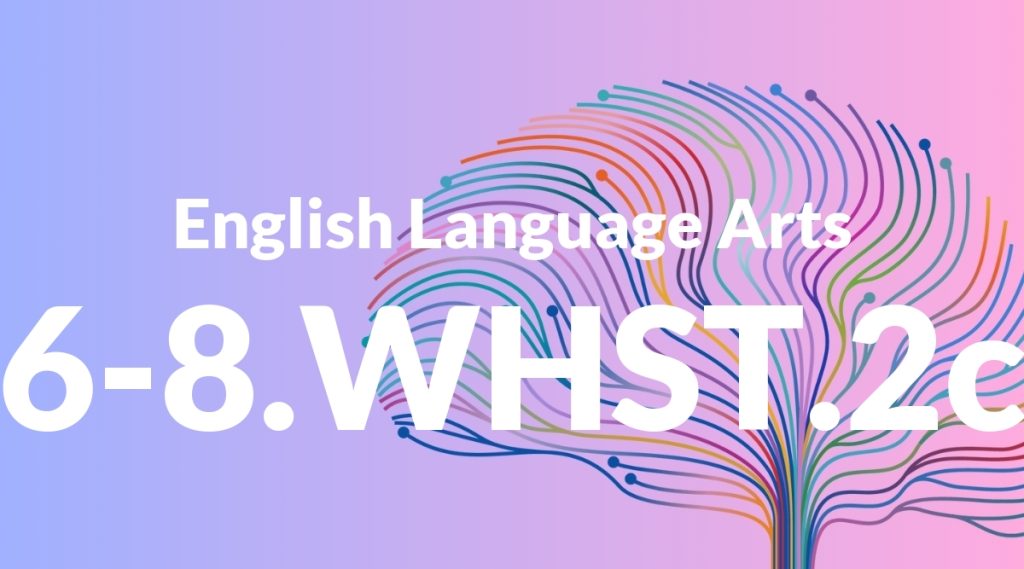Standard: 6-8.WHST.2 – Write informative/explanatory texts, including the narration of historical events, scientific procedures/ experiments, or technical processes.
Grade level: Grade 6-8
Subject: English Language Arts
Domain: Writing: History, Science & Technical Subjects
Teacher Overview
This standard focuses on developing students’ ability to write informative and explanatory texts. This includes writing about historical events, scientific procedures, and technical processes. Mastery of this standard is crucial as it helps students convey complex information clearly and accurately, which is a valuable skill across all subjects. Before tackling this standard, students should be comfortable with basic writing structures and have a foundational understanding of historical events, scientific procedures, and technical processes.
After mastering this standard, students will be able to write detailed and well-organized informative/explanatory texts. They will also develop critical thinking and analytical skills that are applicable to various subjects and future writing tasks.
Common Misconception 1
One common misconception is that informative/explanatory texts do not need a clear structure. This is incorrect because a well-organized text helps readers understand the information more easily.
Intervention 1
To address this misconception, use graphic organizers to help students plan their writing. Show examples of well-structured texts and discuss why they are effective.
Common Misconception 2
Another common misconception is that students can include their opinions in informative/explanatory texts. This is incorrect because these texts should be based on facts and evidence.
Intervention 2
To address this misconception, provide clear examples of fact-based versus opinion-based writing. Encourage students to use reliable sources and evidence to support their writing.
Prerequisite Knowledge
Students should have a basic understanding of writing structures, such as introduction, body, and conclusion. They should also be familiar with the concepts of historical events, scientific procedures, and technical processes.
Subsequent Knowledge
After mastering this standard, students will be able to write more complex and detailed informative/explanatory texts. They will also develop skills in critical thinking and analysis, which can be applied to other subjects and future writing tasks.
Instructional Activities
- Use graphic organizers to plan informative/explanatory texts.
- Analyze examples of well-structured informative/explanatory texts.
- Write a report on a historical event.
- Document a scientific experiment.
- Create a technical manual.
- Peer review and provide feedback on classmates’ writing.




